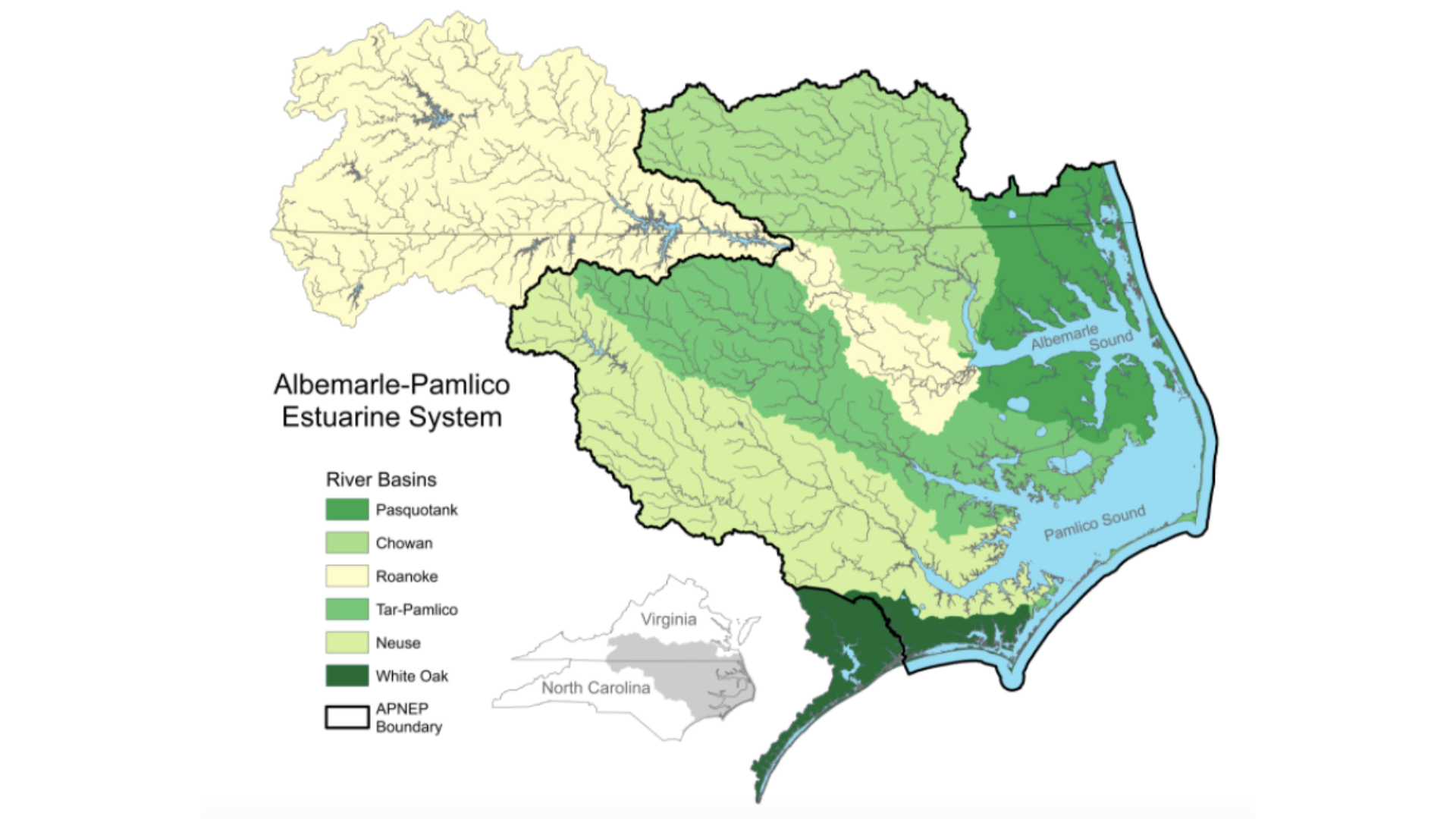New Project Aims to Strengthen Climate Resilience in Coastal Southeastern Tribal Communities

Southeast CASC is working with a group of partners advising a new project initiated by the Albemarle-Pamlico National Estuary Partnership (APNEP) along with the North Carolina Commission of Indian Affairs (NCCIA) and others to support Tribal nations and communities in the Albemarle-Pamlico region in considering climate resilience during community planning. The project, developed by APNEP in collaboration with representatives from Tribal organizations in the Albemarle-Pamlico watershed and coastal plain, is designed to increase engagement among Tribal communities, government agencies, and universities, as well as to acknowledge the unique knowledge and cultural perspectives of these communities surrounding impacts associated with climate change.

Image Credit: APNEP
Core project partners include the NCCIA, APNEP, NC State University (NCSU), and the Virginia Coastal Policy Center. SE CASC joins other project advisors including the UNC American Indian Center and the North Carolina Office of Recovery and Resiliency. Community engagement envisioned through the project includes workshops and other forums to share information on climate impacts and resilience planning strategies, and promotion of information sharing between Tribal communities and resilience practitioners. More information about this project can be found in project the press release or by contacting APNEP Policy and Engagement Manager Stacey Feken at stacey.feken@apnep.org.
The overall goal of this project is to protect the environmental health of the Albemarle-Pamlico region, and support the Tribal communities that reside there. The specific project goals that have been outlined are:
- Identify and acknowledge unique cultural perspectives regarding climate and anthropogenic stressors on Tribal communities that may not be addressed in government or academic led resilience planning processes
- Increase engagement between Tribal communities and local, state, and federal agencies, academic, and non-governmental partners on climate resiliency and adaptation planning
- Build the capacity of local, state, and federal agency staff to establish or strengthen practices for engagement with Tribal communities during resilience planning through better understanding of perspectives and knowledge unique to native communities
- Build capacity for Tribal communities to conduct their own resilience planning via information sharing, network building, and connecting communities to resources.
The project involves work by SE CASC Investigator Ryan Emanuel and Jocelyn Painter, NC State University PhD student.
- Categories:
